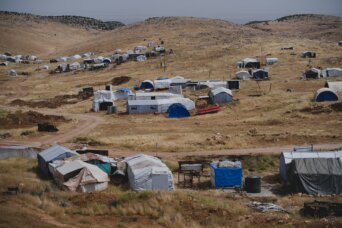- About
- Topics
- Picks
- Audio
- Story
- In-Depth
- Opinion
- News
- Donate
- Signup for our newsletterOur Editors' Best Picks.Send
Read, Debate: Engage.
| topic: | Refugees and Asylum |
|---|---|
| located: | Afghanistan, Ukraine, Iran, Bangladesh |
| editor: | Shadi Khan Saif |
Seeing the ever-growing number of humans uprooted and becoming what is known as 'refugees' due to armed conflicts or other factors makes me wonder if we truly understand what this phenomenon means and why it is happening. This is because the debate about how well refugees are taken care of in the host countries comes after the apparently terrible thing that forced the person, family or group (all equally deserving of rights and liberties) to search and beg for refuge - why?
Perhaps we still do not truly understand the globalised nature of the entire world, by which even the most basic perceptions and actions in one country, for instance, can have profound impacts on another or on the rest of the world.
The global refugee crises from Ukraine, Afghanistan, Bangladesh and the horn of Africa, for example, are partly worsening because in the financially and militarily mightier countries, the common public perceptions about their role and responsibilities towards these crises are not taken seriously enough.
Some six million Afghans are living as refugees in the world. Why was there this bloody military intervention in Afghanistan for 20 long years if it would result in the same authoritarianism and displacement? The same question could apply to the crises in Ukraine, Iraq, and so many more.
The power circles in these so-called first-world countries propagate the fears of the refugee crisis very well in the domestic politics to secure their authority, but the level of their meddling in other countries which cause this dilemma in the first place is never highlighted. And, ultimately, the little handouts and charity support for the vulnerable refugees is showcased at every possible avenue to bolster their charitable image.
Citizens in the countries with significant prestige and influence in the world need to wake up, use their voting power to choose the right politicians and promote policies of equality, non-military interference and pro-environmental action. They simply cannot remain immune to the tragedies in the distant lands partly or fully caused by their own governments.
This vicious cycle, which lacks empathy, is not only aggravating the refugees' dilemma, but further detaching the humans in the host communities from the harsh possibility that they, too, could become refugees one day.
Photo by Levi Meir Clancy
